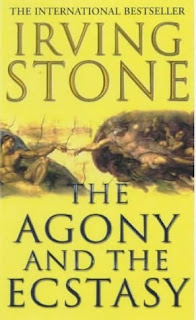Do you like your fiction with a dash (or even a lot) of historical accuracy? If so, you've come to the right place. I recently read The Constant Princess by Philippa Gregory and it got me to thinking if there were other authors who have as much historical accuracy in their novels as she does. And the answer is, yes.
What exactly is historical fiction? As defined by Joyce G. Saricks in The Readers' Advisory Guide to Genre Fiction, it is "a novel set in the past, before the author's lifetime or experience." This can apply to many different types of fiction, including mystery, thriller or adventure. Usually, though, fans of those types of novels don't read them for the historical accuracy.
An historical novel usually examines the life of a real person or a real event. There may not be a lot of information about this person or time, so the author tries to fill in the gaps using their research and their imagination. Fans of this type of fiction are usually interested in history, but don't want to sit down and read a history text book.
So, if you are interested in trying a new genre or are looking for a few new options, take a look at these authors.
-- Margaret George
Margaret George's books have told the lives of many different historical figures, often through the lens of an "autobiography." Her lengthy, yet accessible stories, cover many areas of history. She has written about Henry VIII, Mary Magdalene, Cleopatra and Helen of Troy. Be ready to be totally immersed in the subject's life and their times.
Suggested start: The Autobiography of Henry VIII (1986)
-- Philippa Gregory
The author of over 20 novels, Phillipa Gregory made her mark with The Other Boleyn Girl in 2001. This was the first in a series of books about the Tudor dynasty. It took a look at Mary Boleyn, Anne's sister. While history has recorded much about Anne, there wasn't a lot of information about Mary. Gregory solved that by doing meticulous research into the time period and the Boleyn family and creating an interesting and fascinating life for the "other" Boleyn sister. She continued this success with a series of books about the Plantagenets, an earlier English royal family.
Suggested start: The Other Boleyn Girl (2001)
-- John Jakes
For sweeping sagas about the early years of the United States, you're not going to find a better author than John Jakes. His two most famous series are the Kent Family Chronicles and the North and South Trilogy. The Kent Family Chronicles is an eight book series that follows the lives of the Kent family from before the start of the American Revolution through to the late 19th century. The North and South Trilogy focuses on two families tied by a long friendship that is torn apart because of the Civil War.
Suggested start: The Bastard (1974).
-- Jeff Shaara
The son of famous Civil War author, Michael Shaara, Jeff Shaara has continued his father's dedication to telling engaging and richly detailed stories of American history. His first book, Gods and Generals, is a prequel to his father's The Killer Angels. Shaara also wrote a sequel to it, The Last Full Measure. This prolific writer has branched out to include series about the American Revolution and World Wars I and II.
Suggested start: Rise to Rebellion (2001)
-- Irving Stone
Another author who mastered the biographical novel is Irving Stone. These long and leisurely paced novels cover the well known and the not so well known. Stone focused on historical figures he felt had been given an unfair reputation. In these stories he tries to redeem them. His subjects include Vincent Van Gogh, Sigmund Freud, John and Abigail Adams and Charles Darwin.
Suggested start: The Agony and The Ecstasy: A Biographical Novel of Michelangelo (1961)
In a similar vein to Philippa Gregory, Weir focuses on historical royal figures. Her biographical novels are very character driven with a simple, direct style. Her subjects have included Lady Jane Grey, Queen Elizabeth I and Eleanor of Aquitaine. Before writing historical novels, Weir was known for her historical biographies. She has said that she found it very freeing to not have to stick to just the facts while writing fiction. Weir continues to write both types of books.
Suggested start: Innocent Traitor (2006)
-- Post by Tracy








No comments:
Post a Comment